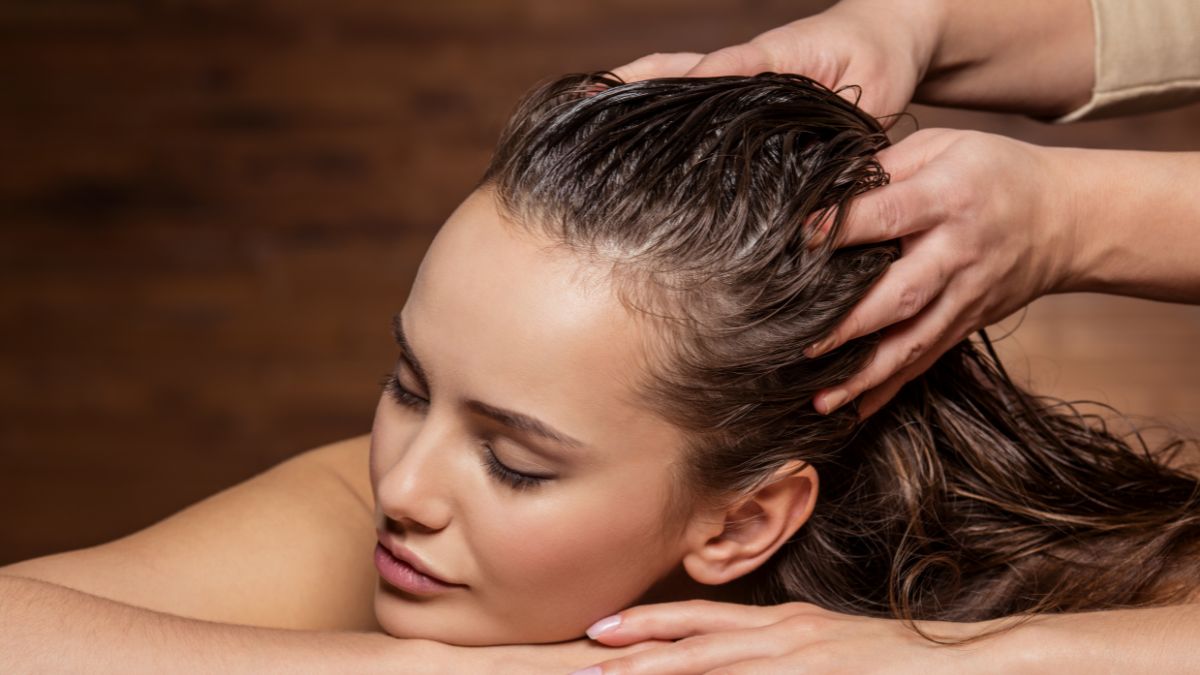- By Priyanka Munshi
- Sat, 30 Dec 2023 02:08 PM (IST)
- Source:JND
Do you know that one of the best ways to nourish and rejuvenate your hair is to massage it with jojoba oil? Jojoba oil is good for all hair types since it balances oil production and is known for being similar to the natural oils produced by the scalp. It prevents dryness and flakiness by hydrating the hair follicles when massaged into the scalp. Jojoba oil's lightweight texture makes it easier to absorb, encourages a healthy scalp, and keeps dandruff at bay.
Also, it gives the hair a natural gloss that makes it softer and easier to handle. Reducing split ends and hair breakage can also be done by regularly massaging hair with jojoba oil. The hair is nourished by its abundant vitamin and mineral content, according to WebMD.

Benefits Of Massaging Your Hair With Jojoba Oil (Image Credit: Canva)
So here we have curated some of the most amazing benefits of massaging your hair with jojoba oil.
Good For Dry Scalp
Jojoba oil's multipurpose nature promotes hair development, alleviates psoriasis and dermatitis, and heals dry scalps.
Natural Moisturizer
Jojoba oil functions as a natural wax ester, much like sebum, and is a natural emollient with restorative esters that mimic human sebum. This helps make hair softer and more moisturized.
Nutrient Rich
Vitamins A, E, and F, squalene, saturated and unsaturated alcohols, fatty acids, and esters are all abundant in jojoba oil. Your hair contains squalene, which functions as a protective agent together with vitamins A and E to stop free radical damage that ages the skin.

Benefits Of Massaging Your Hair With Jojoba Oil (Image Credit: Canva)
Improves Hair Manageability
Jojoba oil is a useful tool for detangling hair, cutting split ends, soothing dry scalps, and balancing the pH of the skin and hair.
Antimicrobial And Anti-Inflammatory Properties
Jojoba oil effectively controls dandruff, shields the scalp from infections and outbreaks, and promotes scalp health because of its antibacterial and anti-inflammatory qualities.
(Disclaimer: This article is for informational purposes only. It is not a substitute for professional advice, diagnosis or treatment.)

